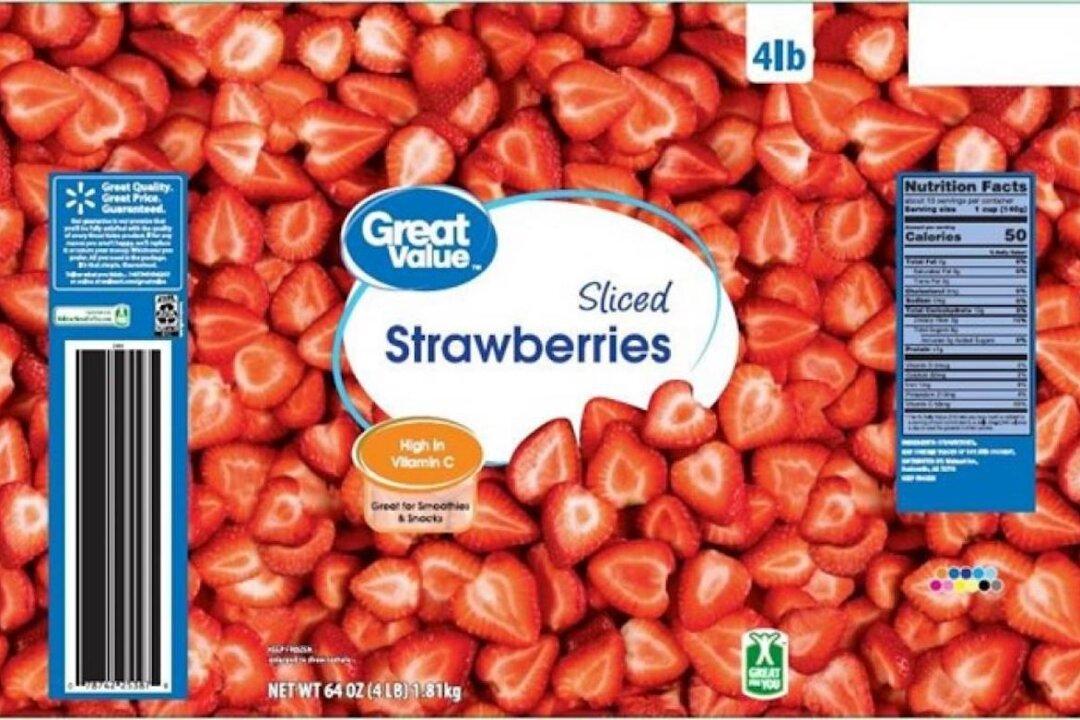The U.S. Food and Drug Administration (FDA) this week expanded a recall of frozen strawberries due to a potential contamination of hepatitis A, according to an agency news release.
On Monday, the Willamette Valley Fruit Company based in Oregon announced the recall of frozen strawberries that are sold at Walmart, Costco, and HEB retail stores under the brand names Rader Farms Organic at Costco and HEB as well as Great Value at Walmart, the FDA notice said. The strawberries were grown in Mexico, the agency added.





